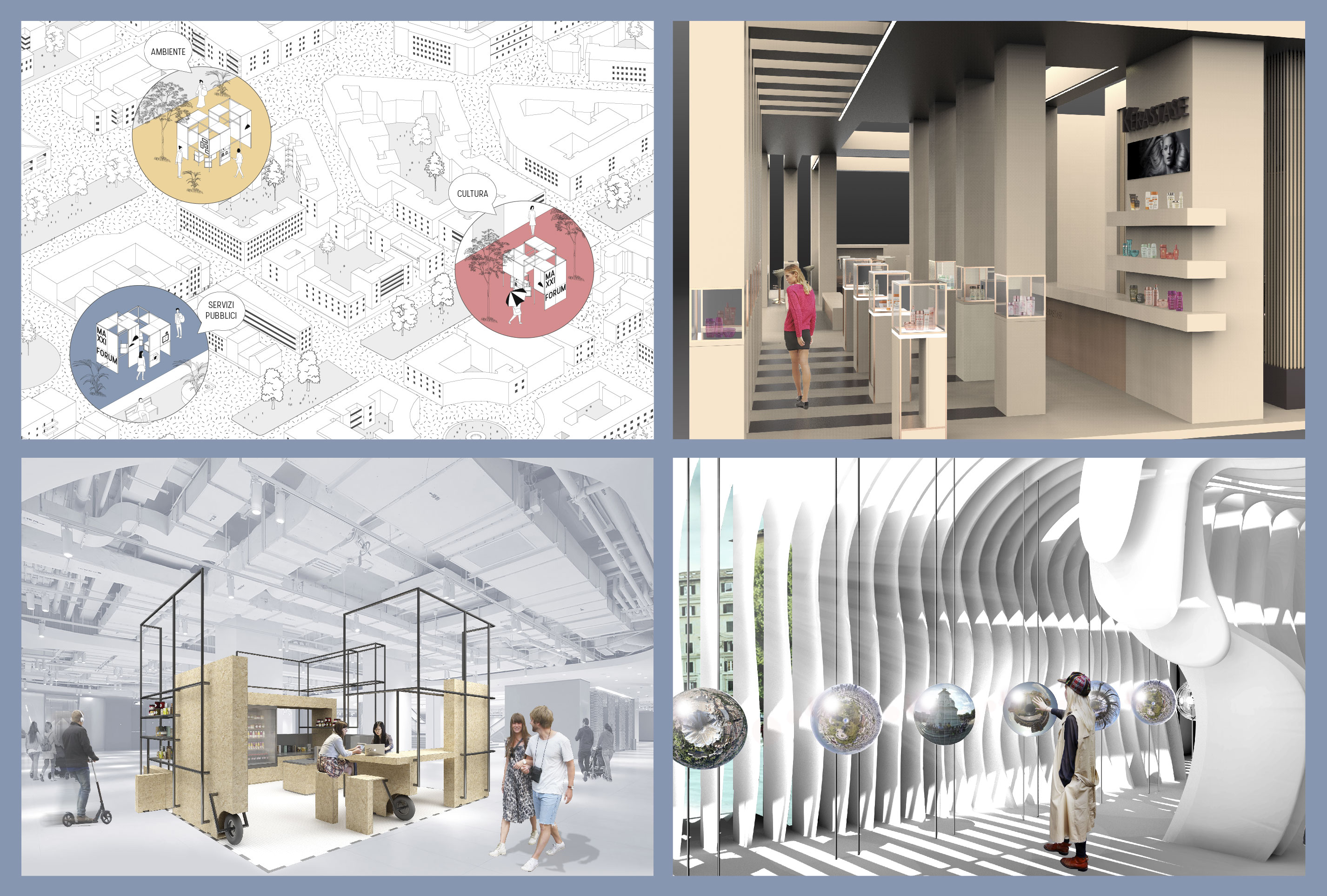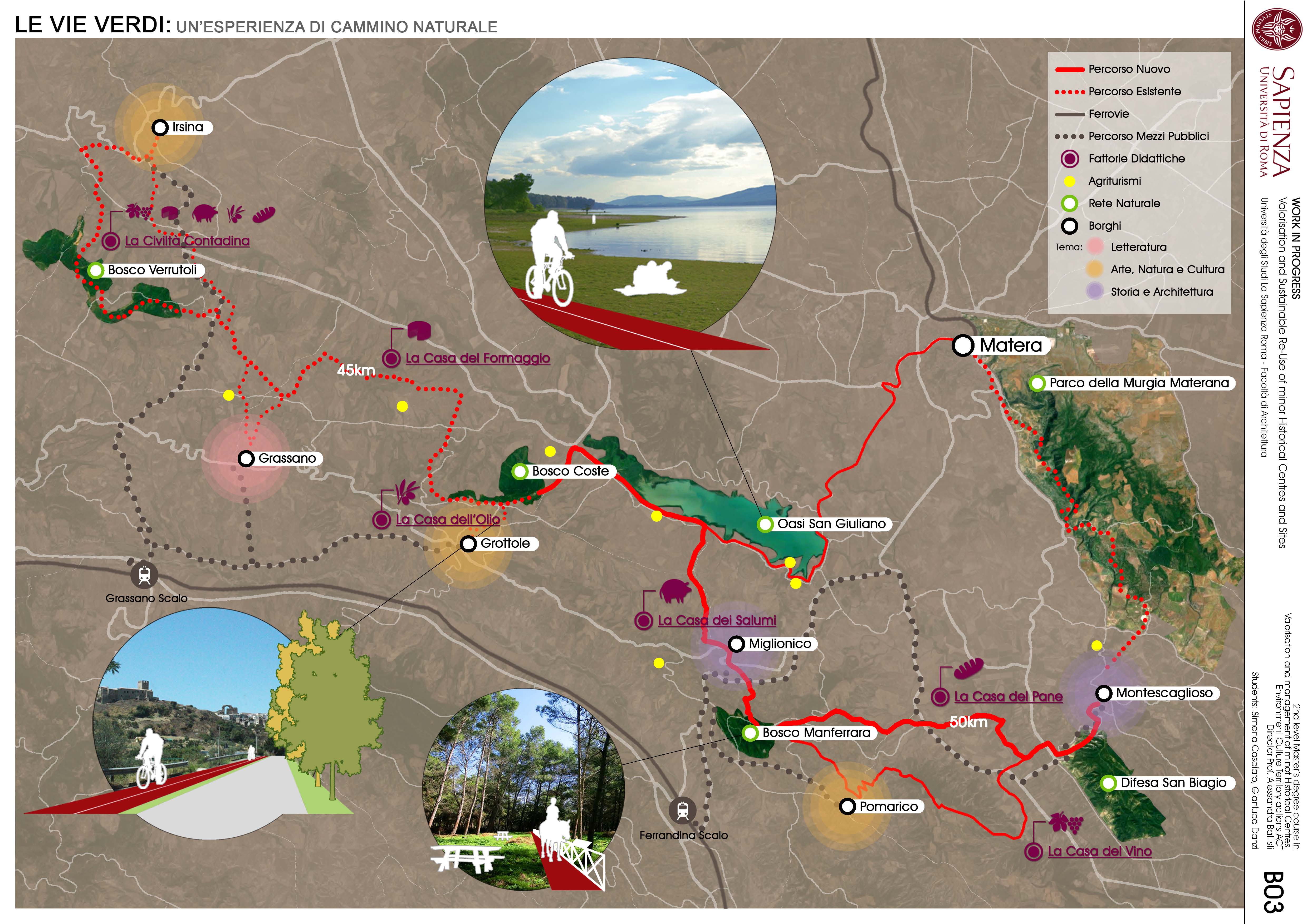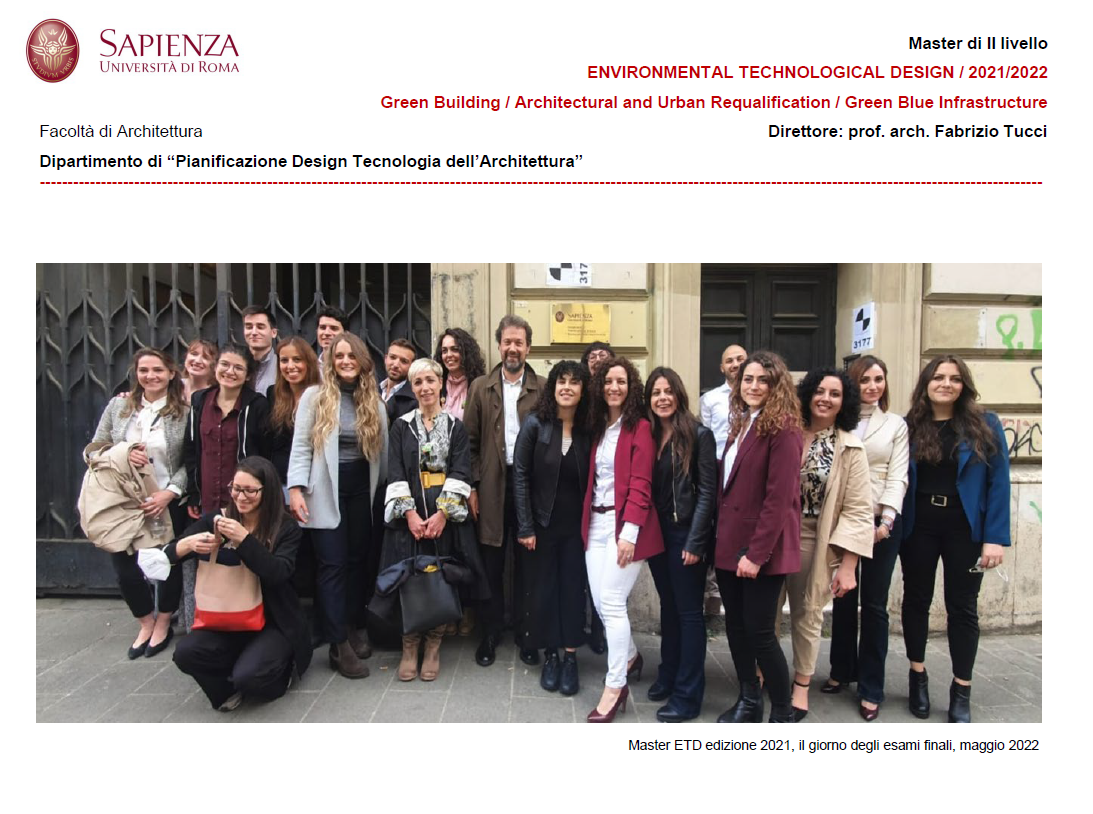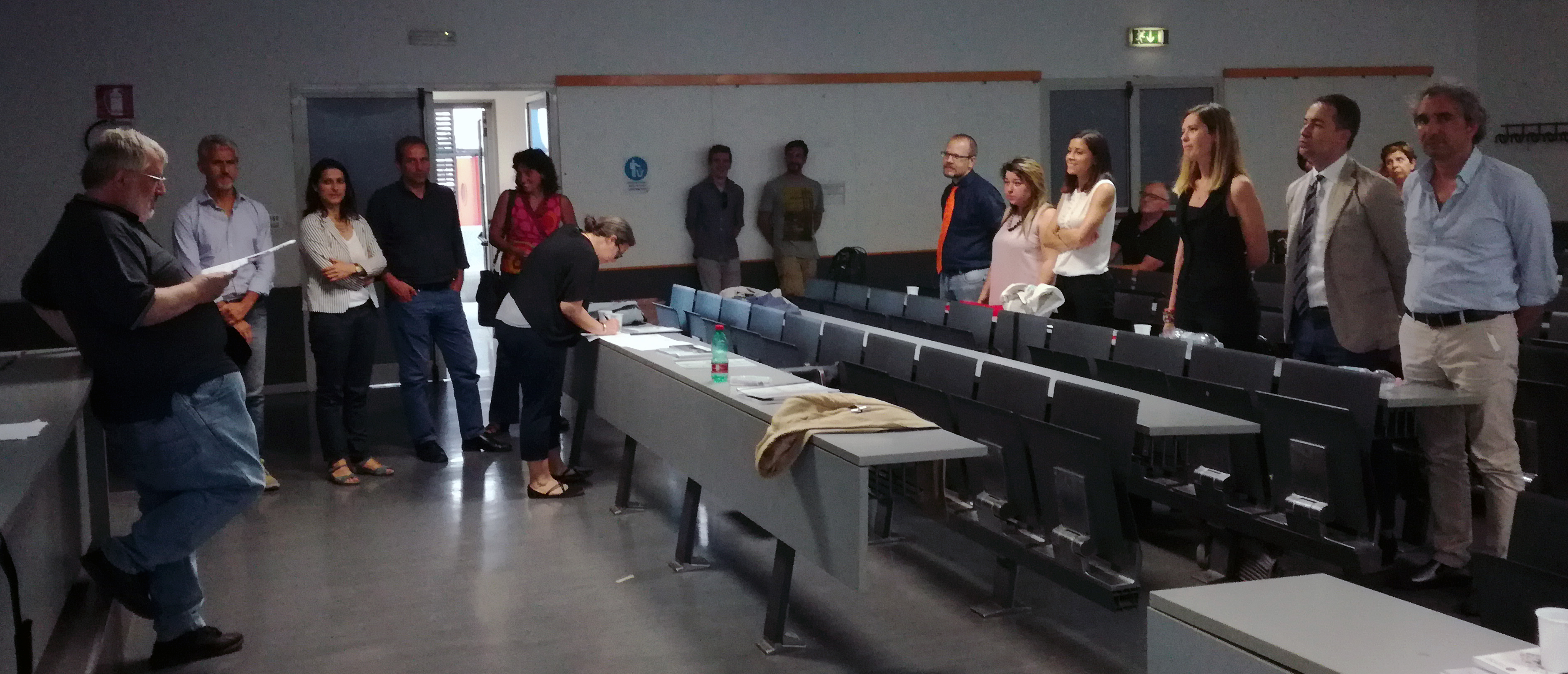Degree Level M1
- Exhibit design "Cecilia Cecchini"

The Master's program was established in 2007. It proposes a training program - aimed at first-level graduates or higher degrees - aimed at developing in the participants cultural sensitivity and technical awareness in the field of design of public spaces, temporary and permanent, indoor and outdoor: exhibition layouts, exhibition structures, trade fair stands, retail design, urban landscape. The educational approach is based on a strong interdisciplinarity between design, architecture and communication. Graduates of this higher education degree can work in professional architectural and design firms, staging companies, event companies, and museum institutions.
Director: Federica Dal Falco
Info: federica.dalfalco@uniroma1.it
Web: academic program
Degree Level M2
- ACT_Valorisation and enhancement of small Historical centres. Environment Culture Territory integrated actions

The Master's program aims to provide training aimed at satisfying the demand for higher technical-scientific education and cultural upgrading from a wide range of activities and professions related to the redevelopment of smaller-scale historic centers, that range from environmentally sustainable management to energy-efficient refunctionalization to planned preservation.
Director: Paolo Galuzzi
Info: paolo.galuzzi@uniroma1.it
Web: academic program
The ACT Master’s is the only Master’s degree in Italy that deals with the theme of the valorization and management of small historical centers with a decidedly interdisciplinary approach; in fact, even though he was born in a Faculty of Architecture, he sees the presence among the teachers of skills that concern the economy, sociology, economic development and other disciplines. The graduate trainee in this Master's program acquires the ability to develop a program of enhancement for a historical center and its territory, with particular attention to the feasibility of the interventions, and to coordinate an interdisciplinary working group. In addition, the method adopted, which always activates the relationship and collaboration of the master with local administrations and operators, allows trainees to enter into the realm of relationships with the real subjects of the transformation of the territory.
- CNAAPP_Natural Capital and Protected Areas. Planning, design and management
The Master’s degree aims to create a training course aimed at satisfying the request for higher education and technical-scientific and cultural updating from activities related to the planning, programming, design and management of protected natural areas - terrestrial and marine - and other forms of protection of the territory, environment and landscape. To run the courses and organize the training activities, the Master makes use of: a) the theoretical-methodological and experimental scientific skills of Professors from Sapienza University of Rome, in particular the PDTA Department, Faculty of Architecture; b) the competences of local, national and international institutions; c) the contribution of the professional, production and services world.
Director: Laura Ricci
Info: laura.ricci@uniroma1.it
Web: academic program
In the context of this training course, the Master responds to the need to develop, among others, skills inherent in specific professional figures, such as those of Director and/or Managerial Officer of a Park or Reserve, as well as Administrator of the same, and who in any case interact with the planning, design and management of areas to be protected and enhanced, including under and in the presence of constraints (Unesco Mab, Natura 2000 Sites, Ramsar Areas, Heritage Unesco).
- ETD_Environmental Technological Design. Green building/Architectural and urban requalification/Green blue infrastructure


The Master's degree is aimed at individuals interested in developing advanced professionalism in the field of bio-ecological architecture and sustainable environmental technologies, such as to enable culturally sensitive and technically appropriate operation in the specific field of architecture. The objective of the Master's degree is in-depth training in the issues specific to the environmental technological design of architecture - Environmental Technological Design - with particular reference to three main topics: new buildings / Green Building; existing buildings/ Architectural and Urban Requalification; urban open spaces / Green Blue Infrastructure.
Director: Alessandra Battisti
Info: alessandra.battisti@uniroma1.it
Web: academic program
In addition to the cultural and scientific study of criteria, methods and instruments aimed at sustainability in architecture, the Master addresses the challenges of conscious design starting with the specificities of Nature-based Solutions, advanced environmental certification protocols such as LEED, WELL and Living Building Challenge, industrial wooden constructions, and innovative plant systems based on the integration of renewable energy sources. Operating within the BIM framework and the application of simulation methodologies, in terms of technical and economic feasibility and performance assessment. Laboratories and workshops integrate lectures, conferences and internships at research institutions and design firms. Among which: ENEA, CNR, EURAC, HABITECH and MIBACT, and major professional firms in Italy and abroad.
The Master programme includes also internships of 320 hours at leading companies active in green materials and components, employing qualified professionals.
- URBAM_Urban planning for public administration

The Master "URBAM_L' urban planning in public administration: Management of the city and the territory," founded by Prof. Umberto De Martino as a Postgraduate Course in 1998 and transformed into a level II Master's Degree in 2001, is aimed at graduates and technicians who aim to work in the field of urban planning, in or with local authorities at different levels. The one-year Master's program offers a training itinerary that provides in-depth knowledge of the procedures, tools and operational methods of urban and territorial planning.
Director: Maria Grazia Della Scala
Info: mariagrazia.dellascala@uniroma1.it
Web: academic program
The lessons are divided into four thematic areas: Basic Tools and Techniques, Administrative organization and procedures for urban planning, Innovation in Urban Planning, Budgetary instruments and assessment methods for local government. 2018 marks the twentieth anniversary of the institution of the Master and the training course has been updated over time in relation to the evolution of the discipline and the emerging demand from the PA. In the last few years a process has begun to address the Master towards professional qualification for a proactive public action, intended as a driver for innovation in territorial transformations and urban regeneration. Main developed focuses concern the transparency and the extended sharing of decision-making procedures, and the proactive dimension in the implementation of urban policies and national and community programs (European planning). The Master’s program includes apprenticeship experience at public and private organizations, and the writing of a final thesis. In past editions, INPS scholarships have been awarded for PA employees and children of PA employees; in addition, the Master's program itself has provided some scholarships for deserving young people.
- Digital Twin and Artificial Intelligence. Digital technologies and processes in the built environment
The Master's program proposes training aimed at providing advanced knowledge on the integration of digital systems, models and technologies for data-driven management of processes related to the construction industry. In particular, the teaching activities focus on the potential proposed by the so-called Digital Transformation in an evolutionary scenario based on the relationship between Industry 4.0 and the construction process, and the consequent impact on the sustainability of processes, through the Digital Twin of the built environment at different scales.
Director: Fabrizio Cumo
Info: fabrizio.cumo@uniroma1.it
Web: academic program
